One Symphony with Devin Patrick Hughes
A podcast that explores classical music’s relevance in our modern lives. Conductor Devin Patrick Hughes will share with you stories and conversations with musicians, composers, and artistic entrepreneurs that aim to unite us into one symphonic world. New episodes every other Monday.
Episodes
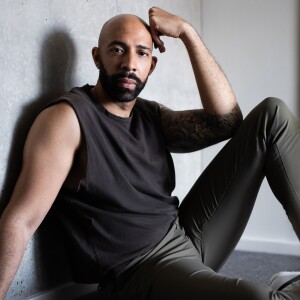
Monday Dec 23, 2024
Damien Geter: Composer, Singer, & Musical Guru
Monday Dec 23, 2024
Monday Dec 23, 2024
In this episode of One Symphony, host Devin Partick Hughes joins podcast, composer, conductor, and singer Damien Geter who shares his unique perspective on the world of opera and his approach to music. Geter's insights, drawn from his experiences as a performer, composer, and educator, offer a compelling look into the challenges and opportunities facing classical music today.
Geter’s current projects include a string orchestra piece, and he recently completed his fifth opera. He discussed his approach to composing, stating that he considers who will sing the parts, and that being a singer himself has given him a unique understanding of how to write for the voice. Geter explained that he doesn't find it hard to write an opera because he's been immersed in the world of opera for so long. His perspective is also informed by his experience conducting operas.
Geter also spoke about the process of putting an opera together. He explained the importance of a libretto workshop before writing the music. He also noted that there are many factors influencing the timeline for a production, including when the composer turns in the music and how organized the company is. Ideally, singers need a few months to learn their roles. He noted that some companies have unrealistic expectations about the time needed to create a new opera. Geter said that he would prefer to have two years to write an opera, but he's been doing it in six months lately and it feels rushed.
A key theme in the interview was the importance of representation in opera. Geter emphasized that people are more likely to engage with opera when they see themselves represented on stage. He noted that he didn't see many people who looked like him when he was growing up, and he wants to help Black and brown kids see that they can also pursue a career in classical music. He also spoke of the importance of partnering with communities to build audiences and secure funding, since American opera companies are not state-funded. He also pointed out the need for opera companies to mix new and old works, to appeal to both new and existing audiences.
Geter's approach to music is heavily influenced by the classical tradition, particularly composers like Beethoven and Brahms. However, he also incorporates elements of his background, such as his experience with jazz, his upbringing in the church, and his perspective as a Black person in the United States. He notes that his music will inherently have elements of his identity even if he's not intentionally writing about those experiences. He wants to have some years where he's not expected to write with a social bend.
Geter spoke about his love for history, which led to him co-authoring a book that examines the social and political context of Western European music. He pointed out that people will likely look back at the art of the 2016-2020 era and understand how much it was influenced by events of that time, such as the Black Lives Matter and Me-Too movements. In addition to his music career, Geter has also had some success as an actor, with a role in the television show Grimm.
Thank you for joining us on One Symphony. Thanks to Damien Geter for sharing his life and music. You can find more info at https://www.damiengetermusic.com. For a list of recordings played on today’s episode please check out our show notes.
You can always find more info at OneSymphony.org or DevinPatrickHughes.com including a virtual tip jar if you’d like to support the show. Please feel free to rate, review, or share the show! Until next time, thank you for being part of the music.
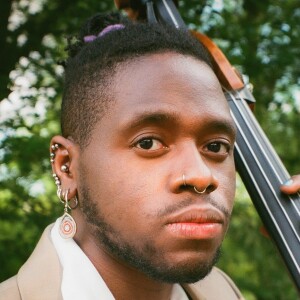
Monday Nov 11, 2024
Counter Classical: Kebra-Seyoun Charles on Redefining Classical Boundaries
Monday Nov 11, 2024
Monday Nov 11, 2024
In this episode of One Symphony with conductor Devin Patrick Hughes, Devin has an inspiring conversation with bass virtuoso and composer Kebra Seyoun Charles. From their early exposure to African drumming and gospel music to becoming a celebrated classical musician, Charles shares their unique journey and vision for the future of classical music through their "Counter Classical" style. Charles's work embodies a fresh perspective on classical music's future, one that honors tradition while embracing innovation and inclusivity. Their approach shows that classical music's evolution doesn't require abandoning its foundations, but rather expanding its boundaries to embrace diverse influences and experiences. As they put it, "Classical music is so beautiful and so ephemeral and it can't be contained."
Charles explores growing up in a musical household and how that led to their disvoery of the film composer, Erich Woflgang Korngold. They also discuss the autobiographical ballet project, Enby, that’s based on their experience as a nonbinary person developing in the world.
Kebra-Seyoun Charles is able to give prominence to the dance qualities in all forms of music. Kebra-Seyoun has performed alongside esteemed improvisers and composers such as Jon Batiste, at Carnegie Hall, and Tyshawn Sorey, at the New England Conservatory. Kebra-Seyoun was also featured in “Slugs’ Saloon” at the Institute of Contemporary Art in Boston, an interactive installation created by famed jazz musician and composer Jason Moran.
Kebra-Seyoun Charles is also a passionate chamber musician. Playing with groups like East Coast Chamber Orchestra, A Far Cry, Palaver Strings, and the Sphinx Virtuosi afford Kebra the opportunity to showcase virtuosity while still playing within an ensemble. A prime example of this is their tenure on the 2019 Emmy award-winning Broadway production “Hadestown”.
Thank you for joining us on One Symphony. Thanks to Kebra-Seyoun Charles for sharing their amazing spirit and music-making. You can find more info at https://www.kscharles.com. Recordings from the episode include:
Koussevitsky: Concerto for Double Bass, First Movement. Featuring Kebra-Seyoun Charles on Double Bass. Performed with the Boston Philharmonic Youth Orchestra, Benjamin Zander conducting.
Dating in NY. Composed by Kebra-Seyoun Charles. Featuring Charles on bass and musicians from the Juilliard School.
The third movement from Andres Martin’s Bass Concerto. Performed by Charles with the New World Symphony under the direction of Chad Goodman.
First movement from Erich Korngold’s Piano Quintet, op. 15. Performed by the ARC Ensemble from the Royal Conservatory, Toronto.
Erich Korngold’s Cello Concerto in One Movement. Featuring Victor Julien-Laferrière on cello performing with the Frankfurt Radio Symphony. Conducted by Marie Jacquot.
“Another Breakup Song.” Composed by Kebra-seyoun Charles. Featuring Charles on bass. Kayla Williams on viola, Joseph Brent on mandolin, Sommer Alteir on violin, and Kabir Adiya-Kumar on percussion.
“Galaxy,” composed by Xavier Foley. Featuring Kebra-seyoun Charles and Xavier Foley on bass accompanied by the Sphinx Virtuosi.
Holdberg Suite. Composed by Edvard Grieg. Performed by the Palaver Strings featuring Kebra-Seyoun Charles on bass.
You can always find more info at OneSymphony.org or DevinPatrickHughes.com including a virtual tip jar if you’d like to support the show. Please feel free to rate, review, or share the show! Until next time, thank you for being part of the music.
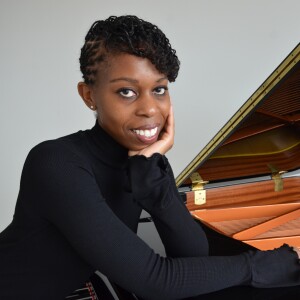
Monday Sep 23, 2024
Florence Price Illuminated with Samantha Ege
Monday Sep 23, 2024
Monday Sep 23, 2024
In this episode of One Symphony, host Devin Patrick Hughes interviews Dr. Samantha Ege, pianist and musicologist, about the life and works of Florence Price. Dr. Ege discusses Price's musical style, her significance in American classical music, and the recent rediscovery of her compositions. The conversation covers Price's role in the Chicago music scene, her blending of classical and African American musical traditions, and the challenges she faced as a Black female composer in the early 20th century. Dr. Ege also shares insights from her own recordings of Price's piano works and her upcoming scholarly publications on the composer.
Dr. Samantha Ege is a leading scholar and interpreter of the African American composer Florence Price. Her work illuminates Price in the context of the Black Chicago Renaissance and Black women's dynamic networks of advocacy, empowerment, and uplift. Her first book, South Side Impresarios: How Race Women Transformed Chicago's Classical Music Scene, and first edited collection, The Cambridge Companion to Florence B. Price, are important culminations of the research she has shared around the world.
Dr Ege is a also concert pianist who specializes in the music of 20th and 21st century composers. Her performances bring her research to life, sounding new narratives that are so often unheard in the modern-day concert hall. Dr Ege seeks to communicate the diversity of classical music's past, present, and future through her performances, and foster a sense of belonging for everyone.
In her London debut at the 2021 London Festival of American Music she gave the world premiere of Florence Price's complete Fantasie Nègre set. In 2018, she made her international lecture-recitalist debut at the Chicago Symphony Center with her event A Celebration of Women in Music: Composing the Black Chicago Renaissance. She has performed across the UK, Europe, North America, and Southeast Asia. She has also played with the Oxford Philharmonic Orchestra, Oakland Symphony Orchestra, Arkansas Symphony Orchestra, and Yale Philharmonia.
Thank you for joining us on One Symphony. Thanks to Dr. Samantha Ege for sharing her incredible research, insights, and music-making. You can find her book, South Side Impresarios and more at https://www.samanthaege.com.
Music Selections
“Weeping Willow, A Rag Time Two Step.” Composed by Scott Joplin. Performed by Benjamin Loeb on the album Scott Jopin: Piano Rags 2 from Naxos.
Violin Concerto No. 2. Composed by Florence Price. Featuring Kelly Hall-Tompkins on violin with the Urban Playground Chamber Orchestra. Conducted by Thomas Cunningham.
Sonata in E minor “Andante.” Composed by Florence Price. Performed by Samantha Ege.
“Sketches in Sepia.” Composed by Florence Price. Performed by Samantha Ege.
Symphony No. 1 in E minor: I. Allegro ma non troppo. Composed by Florence Price. Performed by The Philadelphia Orchestra. Yannick Nézet-Séguin, conductor. Available from Deutsche Grammophon.
Symphony No. 3 in C minor: I. Andante – Allegro. Composed by Florence Price. Performed by The Philadelphia Orchestra. Yannick Nézet-Séguin, conductor. Available from Deutsche Grammophon.
Sonata in E minor “Scherzo.” Composed by Florence Price. Performed by Samantha Ege.
Fantasie Nègre No.4 in B minor. Composed by Florence Price. Performed by Samantha Ege. Available from Lontano Records.
“Snapshots Moon Behind a Cloud.” Composed by Florence Price. Performed by Samantha Ege. Available from Lontano Records.
Fantasie Nègre No.1 in E minor. Composed by Florence Price. Performed by Samantha Ege. Available from Lontano Records.
Juba Dance from Symphony No. 3. Composed by Florence Price. Performed by the Chicago Symphony Orchestra. Ricardo Muti, conductor.
Fantasie Nègre No.2 in G minor. Composed by Florence Price. Performed by Samantha Ege. Available from Lontano Records.
You can always find more info at OneSymphony.org or DevinPatrickHughes.com including a virtual tip jar if you’d like to support the show. Please feel free to rate, review, or share the show! Until next time, thank you for being part of the music.

Saturday Aug 24, 2024
Tobias Picker, Voice of American Opera
Saturday Aug 24, 2024
Saturday Aug 24, 2024
Tobias Picker, deemed “our finest composer for the lyric stage” by The Wall Street Journal, joins Devin Patrick Hughes on One Symphony. Tobias is a prolific composer in all genres. He has composed six operas, commissioned by Dallas Opera, LA Opera, Metropolitan Opera, San Francisco Opera, Santa Fe Opera, and Opera Theatre St. Louis.
Tobias Picker has composed numerous symphonic works including three symphonies, concertos for violin, viola, cello, and oboe, as well as four piano concertos and a ballet. Picker’s recent honors include the 2020 Grammy Award for Best Opera Recording of Fantastic Mr. Fox, and a lifetime membership at the American Academy of Arts and Letters.
Thank you for joining us on One Symphony. Thanks to Tobias Picker for sharing his music and insights. Thank you to Visconti Arts for making this episode possible. You can find more info at https://tobiaspicker.com.
Music Selections—all music by Tobias Picker, except for the first selection.
Gian Carlo Menotti, Suite from Amahl and the Night Visitors. Performed by the Cleveland Pops Orchestra conducted by Louis Lane.
First movement from Symphony No. 1; performed by the San Francisco Symphony. Edo de Waart, conductor.
Awakenings, adapted from the non-fiction book by Oliver Sacks. Libretto by Aryeh Lev Stollman, produced by Odyssey Opera in 2023 of Boston in partnership with the Boston Modern Orchestra Project. Gil, Rose, Conductor. Directed by James Robinson. Commissioned by Opera Theatre of St. Louis.
The Encantadas for narrator and orchestra. Based on the writings of Herman Melville. Sir John Geilgud, narrator; Christoph Eschenbach, conductor; Houston Symphony Orchestra.
"Letter Aria" from Emmeline. Text by J.D. McClatchy Virginia Douglas, soprano Amir Farid, piano. Conducted by Modestas Pitrenas. Supported by Modestas Pitrenas.
“I See A Woman” from Lili Elbe. Text by Aryeh Lev Stollman. Featuring Lucia Lucas as Lili. Performed by the St. Gallen Symphonic Orchestra.
Old and Lost Rivers, for orchestra. Performed by the London Symphony Orchestra conducted by John Williams.
Nova featuring Benjamin Hudson- Violin John Graham - Viola Fred Sherry - Cello Don Palma - Bass Tobias Picker – Piano.
You can always find more info at OneSymphony.org including a virtual tip jar if you’d like to support the show. Please feel free to rate, review, or share the show! Until next time, thank you for being part of the music.
https://tobiaspicker.com
https://www.fox21news.com/business/press-releases/ein-presswire/674899601/devin-patrick-hughes-arapahoe-philharmonic-conductor-presents-a-new-discovery-concert-this-holiday-season/
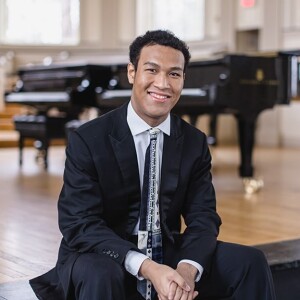
Wednesday Aug 07, 2024
Clayton Stephenson, Pianist and Renaissance Man
Wednesday Aug 07, 2024
Wednesday Aug 07, 2024
American pianist Clayton Stephenson joins conductor Devin Patrick Hughes for an engaging and informative interview on One Symphony. Clayton’s love for music is immediately apparent in his joyous charisma onstage, expressive power, and natural ease at the instrument. Hailed for “extraordinary narrative and poetc gifts” and interpretations that are “fresh, incisive and characterfully alive” by Gramophone, he is committed to making an impact on the world through his music-making.
Clayton and Devin discuss Clayton’s upbringing, his first keyboard and piano courtesy of Lang Lang, his thoughts on performing music new and old, being a young musician, studying economics at Harvard, best health practices and more!
Thank you for joining us on One Symphony. Thanks to Clayton Stephenson for sharing his music and performances. Thank you to the Cliburn and International Keyboard Odyssiad and Festival for making this episode possible. You can find more info at https://claytonstephenson.com.
For a list of recordings played on today’s show see our show notes online.
Rachmaninoff Piano Concerto no. 3 Fort Worth Symphony with Marin Alsop conducting
Art Tatum’s Tea for Two
Bach Busoni Chaconne in D minor
Beethoven Piano Sonata no. 23 in F minor Op. 57
Gershwin Summertime
Bach Jesu, Joy of Man’s Desiring
You can always find more info at OneSymphony.org including a virtual tip jar if you’d like to support the show. Please feel free to rate, review, or share the show! Until next time, thank you for being part of the music!
https://claytonstephenson.com
https://www.muvac.com/en/profile/devin-patrick-hughes
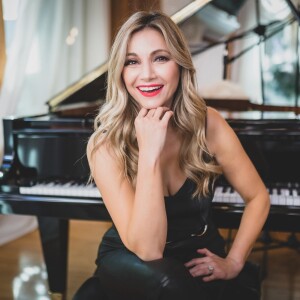
Monday Jun 24, 2024
Marina Arsenijevic, Pianist Preaching Unity Through Diversity
Monday Jun 24, 2024
Monday Jun 24, 2024
In this episode of One Symphony, conductor Devin Patrick Hughes interviews acclaimed pianist and composer Marina Arsenijevic to discuss her journey that led to her latest album, Chopin Obsessions. Arsenijevic shared insights into her upbringing in former Yugoslavia, the influences that shaped her musical style, and her unwavering commitment to promoting unity through diversity. Marina Arsenijevic is as an inspiration to artists and audiences alike. Her journey of unity through diversity reminds us of the transformative power of music and its ability to bring people together, even in the most challenging of times. Growing up in a communist country, Arsenijevic was exposed to a wide range of musical genres, from Western pop to traditional Balkan music, which would later play a significant role in shaping her unique compositional style. As the disintegration of Yugoslavia began in the early 1990s, Arsenijevic found solace in her music. She recognized the power of music to transcend borders and bring people together, even in the face of conflict and adversity. “I wanted to show our common humanity through history, culture, through music, so I started to blend diverse melodies and rhythms to unite us,” she explained.Arsenijevic's commitment to promoting unity through diversity led to the creation of her PBS special, Marina at West Point: Unity Through Diversity. The concert, which featured the West Point Chorus and Band, showcased a diverse range of musical styles and pieces from Gershwin's Rhapsody in Blue to Freddie Mercury's "Bohemian Rhapsody" alongside Arsenijevic's own compositions. The special aimed to share Arsenijevic's message with a wider audience.During the interview, Arsenijevic also discussed her latest album, Chopin Obsessions. She discussed the influence of Chopin's relationships with aristocratic women on his compositions and the evolution of his musical style throughout his career. Arsenijevic also drew parallels between Chopin and other composers of the Romantic Era. When asked about her advice for young composers and pianists, Arsenijevic emphasized the importance of using one's own cultural background and traditional music. She encouraged artists to explore the melodies and rhythms of their heritage and incorporate them into their compositions.
MARINA ARSENIJEVIC is an international award-winning pianist and composer, star of the Emmy-nominated Public Television program, “Marina at West Point: Unity through Diversity”which has been broadcast to more than 170 Million viewers on PBS Stations all across the country. Marina created the program and performed with the 120-member joint ensemble of the West Point Band and West Point Cadet Glee Club. The Concert was recorded live at West Point’s historic Eisenhower Hall and as of 2020 become one of the longest running single concerts at PBS TV Network.
Thank you for joining us on One Symphony. Thanks to Marina Arsenijevic for sharing her music and performances. You can find more info at https://www.marinainamerica.com/home
The following music was heard on today’s episode:
“A Piece of My Sky” composed and performed by Marina Arsenijevic.“Gypsy Suite” from the album My Balkan Soul, composed and performed by Marina Arsenijevic available from KM Records. “Armed Forces Medley” performed by Marina with the West Point Cadet Glee Club and the West Point Band from the PBS special Marina at West Point: Unity Through Diversity. The cadenza and finale from Tesla Rhapsody, composed by Marina made possible by the Gold Spirit Award from the Tesla Science Foundation. Chopin’s Waltz in A-flat Major op 42, Fantaisie-impromptu, Op.66, and Ballade No. 1 in G minor, performed by Marina on the album Chopin Obsession available from United World Bravo Music. “Homolje” from the album Balkan Sounds. Composed and performed by Marina Arsenijevic and the Servian Chamber Orchestra and Chorus. Arranged by Zoran Hristic. Available from United World Bravo Music.
You can always find more info at OneSymphony.org including a virtual tip jar if you’d like to support the show. Please feel free to rate, review, or share the show! Until next time, thank you for being part of the music!
https://www.marinainamerica.com/performances
https://www.priceattractions.com/devin-patrick-hughes-conductor
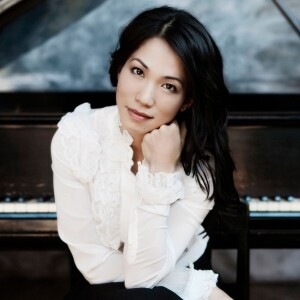
Monday Jun 03, 2024
Quynh Nguyen, Pianist of the World
Monday Jun 03, 2024
Monday Jun 03, 2024
In this episode of One Symphony, conductor Devin Patrick Hughes interviews internationally renowned pianist Quynh Nguyen (pronounced Quin Nwen), exploring her remarkable journey in music. Born in post-war Vietnam, Nguyen's path has been shaped by her family legacy, global influences, and dedication to her craft. From her early beginnings at the Hanoi Conservatory to her studies in Moscow, Paris, and the United States, Nguyen's story exemplifies perseverance and the power of music to transcend boundaries. The interview examines Nguyen's direct connections with French composer Olivier Messiaen and studying with his wife Yvonne Loriod, her respect for Germaine Tailleferre's resilience, and her collaboration with Paul Chihara on his Concerto Fantasy for Piano and Orchestra. Nguyen also explores music’s capability to promote peace between nations in her touching final remarks.
Quynh Nguyen has performed throughout the United States, Europe, and Vietnam, in venues including Carnegie Hall, Lincoln Center, Smithsonian’s Freer Gallery, Berlin Konzerthause, and the Opera House in Hanoi, Vietnam. Broadcast appearances include Voice of America, WQXR, WGBH, NHK Television in Japan, Vietnamese national television, and “Grand Piano,” on cable TV channels across the United States. Her discography includes recordings on Arabesque, Naxos’s American Classics Series, and Music and Arts labels.
Dr. Nguyen is a graduate of The Juilliard School and Mannes College of Music and received her Doctor of Musical Arts degree from the Graduate Center of City University of New York. She is the recipient of several highly prestigious scholarships and awards, including the United States Presidential Academic Fitness Award, the American Prize, and the Fulbright Fellowship to France.
Thank you for joining us on One Symphony. Thanks to Quynh Nguyen for sharing her music and spirit. You can find more info at https://www.quynhpiano.com
All music selections feature Quynh Nguyen on Piano. The following albums were featured on One Symphony today:
“Fleurs de France: No. 2, Coquelicot de Guyenne” and “Berceuse” composed by Germaine Tailleferre from the album The Flower of France available from Naxos.
From Vingt regards sur l'Enfant-Jesus I. No. 15. Le baiser de l'enfant-Jesus ("The kiss of the infant Jesus") composed by Olivier Messiaen from the album Quynh Nguyen: Live in Concert - New York available from Arabesque Records.
Concerto Fantasy, composed by Paul Chihara and featuring Nguyen with the London Symphony Orchestra
“Drinking Songs for Kittens,” “Like Rising Must,” and “Kleine Toccata…” from the Twice Seven Haiku.
4 Reveries on Beethoven (2021 Version): No. 2, Pastorale.
All these selections are available on the album Chihara: Concerto-Fantasy for Piano and Orchestra, Bagetelles, Reveries & Ami on the Naxos label.
You can always find more info at OneSymphony.org including a virtual tip jar if you’d like to support the show. Please feel free to rate, review, or share the show! Until next time, thank you for being part of the music!
https://www.quynhpiano.com
https://www.priceattractions.com/devin-patrick-hughes-conductor
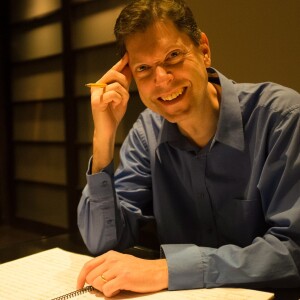
Monday May 13, 2024
Pierre Jalbert: Rethinking Composition
Monday May 13, 2024
Monday May 13, 2024
In this episode of One Symphony, conductor Devin Patrick Hughes sits down with renowned composer Pierre Jalbert to explore Jalbert’s musical journey, creative process, and the spiritual influences that shape his work. Jalbert shares intimate stories about his childhood in Vermont, his collaborations with world-class musicians, and the importance of resonance and reverberation in his compositions. He also pays tribute to his mentor, the late Larry Rachleff, and discusses his genre-bending project with the Apollo Chamber Players. Throughout the interview, Jalbert offers insights into the challenges and rewards of writing for both chamber groups and large ensembles and reveals how he strives to create music that serves the audience. Join us for a fascinating glimpse into the mind of one of today's best composers.
Earning widespread notice for his richly colored and superbly crafted scores, Pierre Jalbert’s music has been described as “immediately captures one’s attention with its strong gesture and vitality” by the American Academy of Arts and Letters. Among his many honors are the Rome Prize, the BBC Masterprize, a Guggenheim Fellowship, and the Fromm Foundation commission.
Jalbert’s music has been performed worldwide in such venues as Carnegie Hall, Wigmore Hall, Lincoln Center, the Kennedy Center, and the Barbican. Recent orchestral performances include those by the Boston Symphony, the National Symphony, the Houston Symphony, the Cabrillo Festival Orchestra, and the Cincinnati Symphony Orchestra.
He has served as Composer-in-Residence with the Los Angeles Chamber Orchestra, the California Symphony, and Music in the Loft in Chicago. Select chamber music commissions and performances include those of the Ying, Borromeo, Maia, Enso, Chiara, Escher, Del Sol, and Emerson String Quartets, as well as violinist Midori. Three new CDs of his music have been recently released: Violin Concerto, Piano Quintet and Secret Alchemy, and Piano Trio No. 2.
Jalbert is Professor of Music at Rice University's Shepherd School of Music in Houston, and he is a co-founder of Musiqa, a Houston-based new music collective. His music is published by Schott Helicon Music Corporation, New York.
Thank you for joining us on One Symphony. Thanks to Pierre Jalbert for sharing her music and stories. You can find more info at https://www.pierrejalbert.com.
Pierre Jalbert composed all music featured in this episode, with one exception.
String Theory was performed live by the Kaleidoscope Chamber Orchestra.
Mystical and With Great Energy, from Secret Alchemy, from the album Music From Copland House performed by Curtis Macomber, Danielle Farina, Alexis Pia Gerlach and Michael Boriskin.
The first movement from From Dusk to Starry Night “The Night in Silence” on a text by Walt Whitman features Sasha Cooke and the River Oaks Chamber Orchestra.
Violin Concerto, featuring Steven Copes on violin. Performed by The Saint Paul Chamber Orchestra with Thomas Zehetmair as the conductor.
“Fiddle Dance” from L’espirit du nord. Performed by the Apollo Chamber Players.
Mozart Piano Concerto K488 in A major, first movement improvised cadenza performed by Robert Levin with the Cluj-Nacopa Philharmonic in Romania with Nicole Moldovenau as the conductor.
“Chanson de Lisette” from Le’spirit du nord. Performed by the Apollo Chamber Players.
“Music of air and fire” performed by the Houston Youth Symphony conducted by Michael Isadore.
You can always find more info at OneSymphony.org including a virtual tip jar if you’d like to support the show. Please feel free to rate, review, or share the show! Until next time, thank you for being part of the music!

Monday Apr 29, 2024
Juhi Bansal, Composing Cultural Influences
Monday Apr 29, 2024
Monday Apr 29, 2024
In this episode of One Symphony, Juhi Bansal discusses her diverse cultural influences, from Hindustani classical to Western styles, and how she weaves them together to create powerful narratives through sound. Bansal delves into the inspiration behind several of her striking works, including "Songs From the Deep," "Waves of Change," and "Aurora," which explore themes of women's resilience, environmental conservation, and the beauty of natural phenomena. Bansal also reflects on the role of artists in driving change and her personal growth as a composer over the past 15 years. Join us for an engaging conversation that celebrates the power of music to create narratives that combine spirituality and nature.
Thank you for joining us on One Symphony. Thanks to Juhi Bansal for sharing her music and stories. You can find more info at https://juhibansal.com.
Juhi Bansal composed all music featured in this episode.
Songs from the Deep commissioned by the Oregon Mozart Players for the 2022 Sound Investment Commission.
Waves of Change (music, surfing and identity) inspired by the Bangladesh Girls Surf Club in Cox’s Bazaar region of Bangladesh. Performed by Ranjana Ghatak. Featuring Kathryn Shuman singing soprano and Timothy Loo on cello.
Flash, Glimmer, Glow, Spark. Performed by the Dusseldorf Symphony.
Aurora (for SATB chorus). Performed by the LA Choral Lab. Featured soloists are Kathryn Shuman, Molly Pease, Rothan Ramanan, and Zachary Zaret.
Love, Lose, Exile for Soprano, Cello, and Piano. Featuring Abigail Sinclair on soprano, Yu-Hsin Teng on piano, and Evan Kahn on piano.
Wings for Violin, Cello, and Piano. Performed by Pasha Tseitlin on violin, David Meyer on cello, and Nic Gerpe on piano.
You can always find more info at OneSymphony.org including a virtual tip jar if you’d like to support the show. Please feel free to rate, review, or share the show! Until next time, thank you for being part of the music!
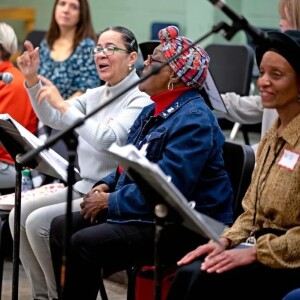
Monday Apr 15, 2024
Dementia Friendly Concerts with Ralph Patrick
Monday Apr 15, 2024
Monday Apr 15, 2024
In this episode of One Symphony, host Devin Patrick Hughes sits down with Ralph Patrick, a former pastor and Alzheimer's Association collaborator, to explore the profound impact of music on individuals living with dementia. Patrick shares his personal experiences and insights, discussing how live musical performances can engage, stimulate, and connect with those affected by this challenging disease. Discover the steps musical organizations can take to create dementia-friendly programs and learn about the cognitive benefits of music for individuals with dementia. Don't miss this thought-provoking discussion on the transformative power of music and its ability to reach the deeper, inner self beyond cognition.
Ralph Patrick, a former pastor and Alzheimer’s Association collaborator is the son of Jean who died of Alzheimer's in 2012. Her diagnosis in 2001 led him to join the Colorado Chapter of the Alzheimer's Association. He has presented hundreds of education classes, as well as providing consultationg services for both caregivers and those living with dementia, and has been a collaborator and presenter with Boulder Symphony creating Sensory Friendly concert series, reaching thousands in Colorado and beyond.
00:00 Introduction to the Power of Music in Dementia Care
00:14 Early Experiences and Realizations
01:59 The Impact of Music on Dementia: Recorded vs. Live
04:31 Advancements and Community Engagement in Music Therapy
07:08 Orchestras and Ensembles: Engaging with Dementia Programs
09:56 Tailoring Music Programs for Different Stages of Dementia
16:59 The Therapeutic Benefits of Music for Dementia
18:51 The Role of Orchestras in Supporting Dementia Communities
22:10 The Deep Connection Between Music and Memory
23:28 Preventative and Therapeutic Benefits of Music
25:08 Closing Thoughts and Encouragement
Thank you for joining us on One Symphony. Thanks to Ralph Patrick for sharing his expertise and stories. You can find more info at https://www.alz.org or https://bouldersymphony.org/outreach/ or linkedin.com/in/ralph-patrick-69734215
Musical selections on this episode today include
Bach - Air from Orchestral Suite no. 3 in D major BWV 1068 Performed by the Netherlands Bach Society
Pyotr Ilyich Tchaikovsky – Symphony No 5 in E minor op. 64 Sergiu Celibidache conducts the Munich Philharmonic Orchestra
Mozart Divertimento in D Major, K. 136 "Salzburg Symphony No. 1": II. Andante · Ton Koopman conducts the Amsterdam Baroque Orchestra
The Syncopated Clock · Leroy Anderson, conducted by Leroy Anderson
Shostakovich: Jazz Suite No. 2 - VI. Waltz II Riccardo Chailly conducts the Royal Concertgebouw Orchestra
Beethoven: Symphony No. 6 In F, Op. 68 -"Pastoral" – First movement -- Herbert von Karajan conducts the Berliner Philharmonic
You can always find more info at OneSymphony.org including a virtual tip jar if you’d like to support the show. Please feel free to rate, review, or share the show! Until next time, thank you for being part of the music!
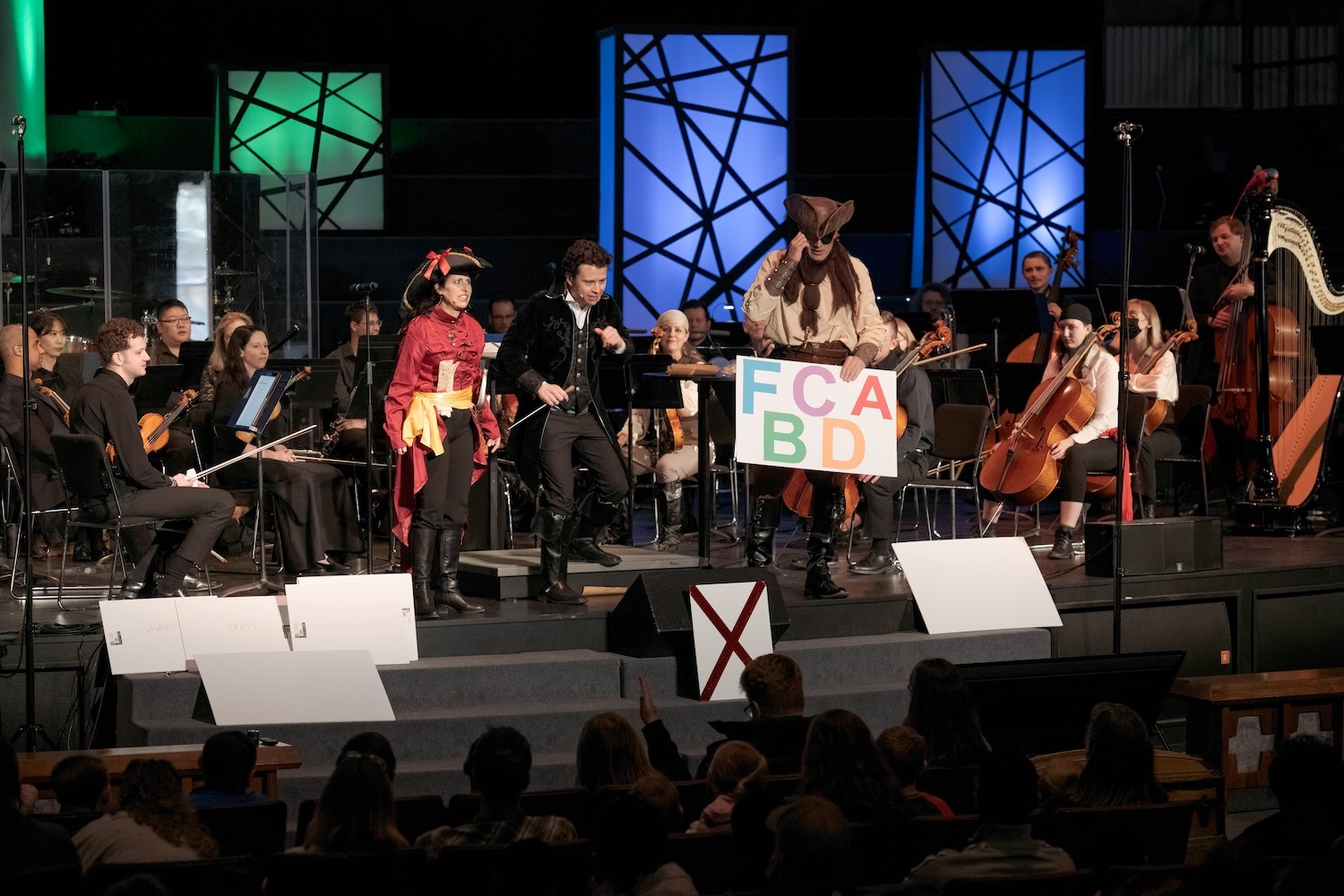
Featured Episode
Join writer and performer Dominique Christina, in a discussion which covers craft and performance, the etymologies of words, the importance of learning from past poets like Edgar Allen Poe and Beethoven, and the relationship between artists and politicians.
In additional to some amazing musical selections Dominique shares two of her more recent poems, It’s Morning and Praise Poem at the end of the episode.
“Sometimes the most radical thing you can do is to be still and listen, to be soft, to be nurturing, to be caring, to be empathetic, to keep your heart open, to keep your hands open. That’s radical stuff, it’s not the smashing of things, the breaking of things, the setting of fires, it’s not. The most radical stuff is to lead with love, to be human, to remain human, when there’s so many opportunities for you to be brutish, or disconnected from your heart, to remain available is radical.”











